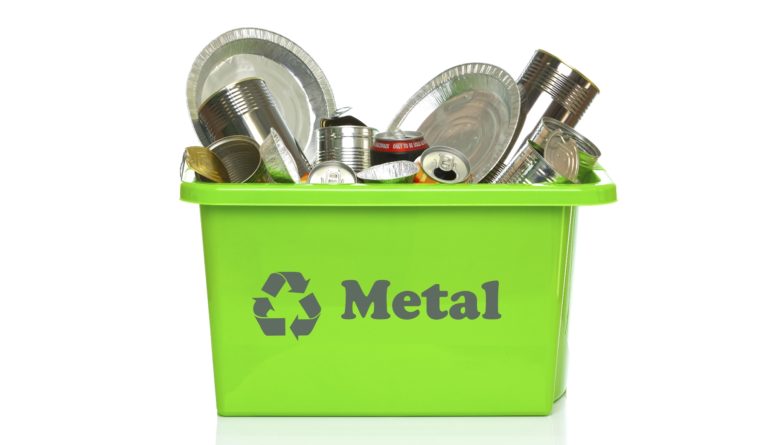Recycled Metals
Recycling metals is a crucial strategy for reducing greenhouse gas emissions, conserving natural resources, and minimizing environmental impacts. This approach involves reprocessing scrap metals into new products, reducing the need for virgin materials and the associated environmental footprint.

Recycled Metals (Zore's Recycling)
View open jobs in this Solution
Example Companies
- Mint Innovation - Developing a biometallurgical processes that use microbes to capture value from metal waste streams while mitigating environmental harm.
- Nth Cycle - Nth Cycle is a metal processing technology company working with battery recyclers and miners to recover production-grade critical minerals.
- Noveon Magnetics - Noveon Magnetics develops a proprietary Magnet-to-Magnet recycling process.
- Greencopper - Develops sustainable recycling technologies.
- Recycling Technologies - Innovates in recycling processes for various materials.
- Ecometals Technologies - Innovates in metal recycling processes.
- AMP Robotics - Uses AI and robotics to optimize recycling.
- Sims Metal Management - One of the world's largest metal recycling companies.
Overview
Recycling metals is a crucial strategy for reducing greenhouse gas emissions, conserving natural resources, and minimizing environmental impacts. Companies like Greencopper and Recycling Technologies have been at the forefront of this effort, developing innovative technologies that significantly reduce emissions and make metal production more sustainable.
- 3 Categories of Metal That Can Be Recycled - Zore's Recycling
Progress Made
Significant advancements have been made in metal recycling technologies:
- Efficient Recycling Processes: Innovations in recycling processes minimize material loss and energy consumption.
- New Alloys and Composites: Development of new alloys using recycled metals to enhance performance and sustainability.
- Sustainable Manufacturing: Using recycled metals in manufacturing processes to replace virgin materials.
Solutions by Sector
Industrial Recycling
- Aluminum Recycling: Reprocessing aluminum scrap to produce new aluminum products.
- Steel Recycling: Melting down steel scrap to create new steel products.
- Copper Recycling: Recovering copper from scrap for reuse in various applications.
Case Studies:
- Greencopper, Canada: Develops sustainable recycling technologies for copper (Greencopper). The company is praised for its innovative approaches but needs to address the environmental impact of its supply chain.
- Recycling Technologies, UK: Innovates in recycling processes to improve efficiency (Recycling Technologies). The scalability and economic viability of their processes remain challenges.
- Sims Metal Management, Global: One of the world's largest metal recycling companies (Sims Metal Management). While effective, the company faces scrutiny over its environmental practices and the sustainability of its operations.
Technological Innovations
- Advanced Sorting Technologies: Using AI and robotics to sort and process scrap metals more efficiently.
- Electrochemical Recycling: Innovative methods to recover metals from electronic waste.
- Closed-Loop Recycling: Systems that ensure metals are continuously recycled without quality loss.
Case Studies:
- AMP Robotics, USA: Uses AI and robotics to automate the sorting of recyclable materials (AMP Robotics). The technology is promising but requires significant investment for widespread adoption.
- Ecometals Technologies, Global: Innovates in metal recycling processes to improve efficiency (Ecometals Technologies). The company faces challenges related to the economic feasibility of its technologies.
Environmental and Social Impact
- Reducing Emissions: Recycling metals significantly reduces greenhouse gas emissions compared to producing metals from virgin materials.
- Conserving Resources: Reduces the need for mining and the associated environmental degradation.
- Community Engagement: Involving local communities in recycling programs to promote environmental stewardship.
Case Studies:
- Climate Action Network, Global: Advocates for policies that support metal recycling to reduce emissions (Climate Action Network). The organization emphasizes the need for stronger regulations and incentives.
- IRENA, Global: Promotes the use of recycled metals in renewable energy technologies (IRENA). The integration of recycled metals in the renewable sector is beneficial but requires further research.
- UN Environment Programme, Global: Supports initiatives to improve metal recycling practices worldwide (UNEP). The program highlights the need for international collaboration and funding.
Lessons Learned
-
Successes:
- Recycled metals significantly reduce greenhouse gas emissions and conserve natural resources.
- Efficient recycling processes and new technologies have made metal recycling more sustainable.
-
Failures:
- Toxic chemical release and metal leaching into the environment remain challenges.
- High costs and energy-intensive processes hinder large-scale adoption.
-
Lessons Learned:
- Investing in recycling infrastructure and technology is crucial for reducing emissions and conserving resources.
- Addressing environmental and social impacts is essential for sustainable metal recycling.
Challenges Ahead
- Infrastructure Needs: Developing the necessary infrastructure to support large-scale metal recycling.
- Energy-Intensive Processes: Reducing the energy consumption of recycling processes.
- Public Awareness: Increasing awareness about the benefits of metal recycling.
- Corporate Accountability: Ensuring companies are held accountable for their environmental practices and potential greenwashing.
Best Path Forward
- Public Awareness: Increase public awareness about the benefits of metal recycling.
- Corporate Responsibility: Encourage businesses to adopt sustainable metal recycling practices.
- Infrastructure Development: Improve recycling infrastructure to support large-scale operations.
- Research and Development: Invest in R&D to develop more efficient recycling methods.
- Policy Support: Implement policies and regulations that incentivize metal recycling.
Prominent supporters include the American Iron and Steel Institute, the Aluminum Association, and the Institute of Scrap Recycling Industries.
Image credit: Zore's Recycling